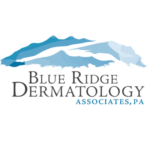Skin issues can be a difficult challenge for most people, affecting everything from self-esteem to the quality of daily life. And many of those with skin issues face the same common culprits. But, just because these conditions are common does not mean they are always easier to treat. In fact, surprisingly, they can be some of the more difficult problems to treat, and in moderate to severe cases, a dermatologist may need to be consulted. These are three such common skin issues, as well as ways to manage them and prevent symptoms from worsening.
1. Acne
Thought to be the most common skin issue in the United States, Acne is most commonly found in adolescents anywhere from ages 12 to 21, but this issue is actually often seen in adults as well. Generally speaking, acne is the clogging of hair follicles and oil glands of the skin. The pore then becomes infected, and the results can be painful, irritating, itchy, and unsightly. Additionally, while acne is generally found on the face/neck, it can affect various parts of the body as well, such as the arms, shoulders, and back. Acne will also appear in a number of different forms, like pimples, blackheads, and whiteheads, and when more severe, it can cause cysts, papules, and modules beneath the skin.
Acne has been heavily linked to everything from genetics and hormones to hygiene and hydration. And treatments vary just as much. In general, though, your acne medication should always limit sebum and bacteria production and should always promote the exfoliation of dead cells and hydration of healthy ones. So look for ingredients that promote these things and will lead to less clogged pores. In serious cases, a physician should be consulted for more specific medications that can alleviate some to all symptoms over time.
2. Eczema (or Dermatitis)
1 to 3 percent of the adult population struggles with mild to severe eczema of some kind. And though symptoms vary, the most common hallmarks of this skin issue are scaly, dry patches of discolored skin that itch and are often irritable and visibly inflamed. And while Eczema can, for many, be easily treated, these pesky patches leave many frustrated, especially since treatment will vary depending on the type of eczema and the root causes behind it. Some Eczema is more chronic, while other types are triggered by simple irritation to the skin like a burn or scrape, or an allergic reaction. One common treatment for eczema is immunosuppressants. These medications safely inhibit the body’s immune system, slowing the body’s responses that will trigger eczema. Yet, in less severe cases, simply moisturizing thoroughly and often can alleviate most symptoms. A dermatologist can help you identify what type of eczema you have and establish a plan to provide you with relief. More often than not, eczema is easily treated.
3. Psoriasis
This skin issue, which plagues over 8 million Americans each year, comes from an overproduction of skin cells in a short period of time. The rapid development of new cells causes the old ones to pile up on the skin, forming thick, discolored spots on the skin known as plaques. And while not all psoriasis leads to this skin plaque, most cases unfortunately do. The patches can be extremely itchy, sensitive, sore, and dry, appearing most commonly on the elbows, knees, and scalp. But again, this skin issue varies from person to person: some will have only small spots in random areas, while others will have entire limbs or areas on the body covered in this plaque. The causes for this issue range from stress to genetics to allergies, smoking, and colder weather. So, the most common preventive measure to prevent flare-ups is to identify the cause and avoid it when possible. Further, topical creams, as well as injectables and other medications, can provide relief in more severe cases.
Make an Appointment at Blue Ridge Dermatology
To get more information on how to maintain healthy skin, consult a dermatologist. Blue Ridge Dermatology provides comprehensive medical and cosmetic dermatology. To get more information about spider vein treatments, call us at (919) 781-1050 to make an appointment.



